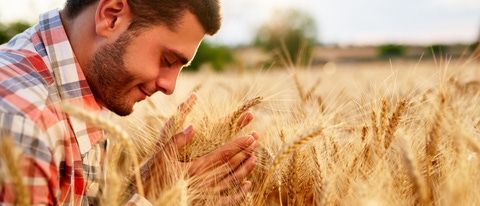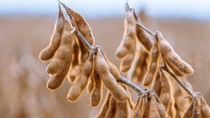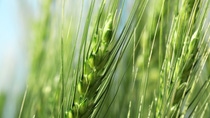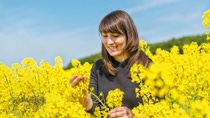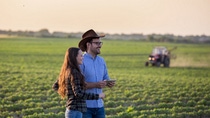Agriculture
Connecting Innovations For Better Yield
Developing much needed innovations and connecting them is how we make farm management easier and more effective: helping growers balance risk, manage inputs more precisely and grow crops more sustainably.

Agricultural innovation is essential to enable sustainable food production. We are advancing a holistic innovation pipeline with solutions that help farmers achieve high yields while becoming more CO2-efficient and more resistant against changing weather conditions.
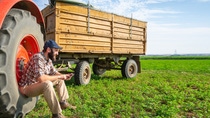
Farmers face increasingly complex demands. They must increase their productivity to keep up with the needs of a growing population, while minimizing the impact of farming on global resources.
The need has never been greater for simplification of farm management, and effective and sustainable farming solutions. We believe that combinations of solutions will enable better yield. Not just higher yield – but yield designed to balance the agronomic, economic, environmental and societal issues farmers face, regionally and globally.
Connecting innovations for impact
We start at the level of the grower and their farm. We combine the best technologies across our broad portfolio for solutions that work in their region, and for the challenges unique to the crops they grow.
Innovation to make a positive impact on the agricultural food system
We want to have a positive impact on the agricultural food system, so we focus on four major strategic customer segments and selected crop combinations, known as crop systems: soy, corn (maize) and cotton in the Americas; wheat, canola (oilseed rape) and sunflowers in North America and Europe; rice in Asia; and fruit and vegetables globally. Our research and development activities are also aligned with these strategic crop systems, to deeply understand the challenges of each crop system, and develop and connect offers that support our customers’ success for ever more sustainable farming. This includes connecting solutions and partners along the food value chain to jointly secure a more responsibly food supply. BASF leverages the potential of digitalization in farming to help growers achieve better yield with fewer natural resources and chemical inputs. By doing so, we ensure the future availability of ever more sustainable agricultural solutions and thus provide the means for farmers to produce even more sustainably.
Our research and development activities are aligned with four strategic crop systems.

